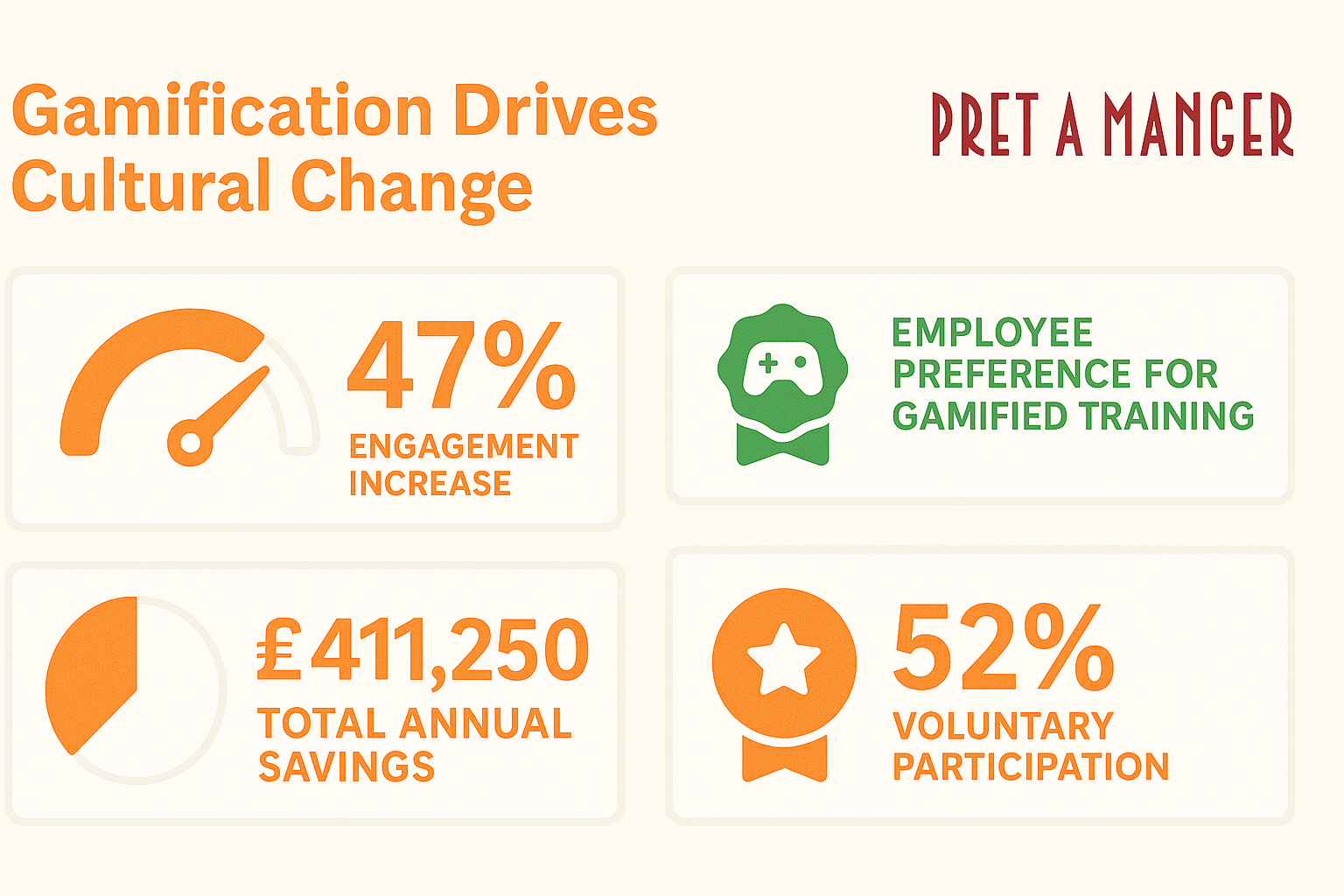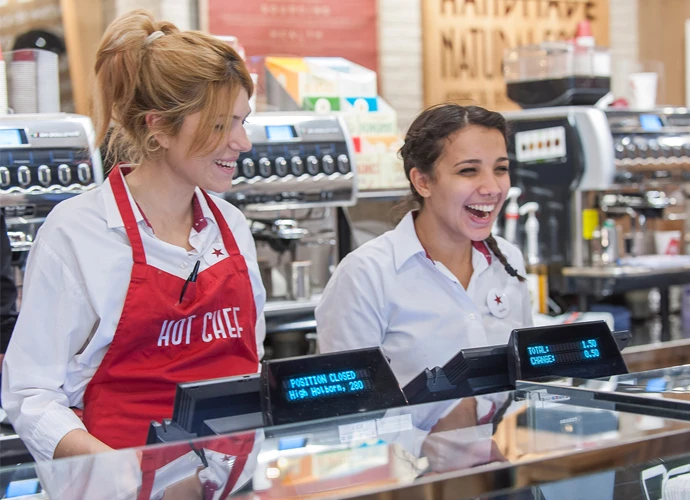How UK's Pret A Manger Turned Food Safety Into a Daily Game Worth £2M Savings
Transforming crisis into culture through gamified safety excellence
Following tragic allergen incidents, Pret A Manger revolutionised food safety through gamified daily challenges and digital systems, preventing incidents whilst achieving substantial cost savings through reduced penalties and improved compliance.


The tragic deaths of Natasha Ednan-Laperouse and Celia Marsh sparked one of the UK restaurant industry's most significant safety transformations. Pret implemented 88 recommendations from former FSA CEO Tim J. Smith's Food Advisory Panel, fundamentally reshaping operations across 525+ shops. The company invested £1 million in enhanced training and deployed digital workplace tools tracking over 65,000 monthly tasks with full compliance monitoring (Source: BBC News, 2018; Retail Tech Innovation Hub, 2024).
Digital food safety management systems incorporating gamification elements demonstrated significant financial returns across the UK QSR sector. Companies using platforms like Squizify achieved monthly stock loss savings of £39,000 and daily L&D savings of £3,900, translating to estimated annual savings exceeding £1.4 million. These organisations also reported a 50-fold increase in hazard and near-miss reporting (Source: Squizify, 2024).
Pret partnered with YOOBIC to deploy digital workplace tools across 525 shops in 15 international markets, tracking compliance in real-time. The UK context is critical: Tesco received the largest-ever UK food safety fine of £7.56 million in 2023, whilst Asda faced multiple penalties totalling over £1.3 million in 2024 alone. The FSA estimates improved compliance could prevent 3,700 fewer foodborne illness cases annually, saving £15.7 million in productivity losses and healthcare costs (Source: Pinsent Masons, 2024; Food Standards Agency, 2025).

Research demonstrates compelling advantages of gamified training approaches. Deloitte's implementation resulted in 47% increase in employee engagement and 60% improvement in knowledge retention whilst reducing training costs by approximately 15%. TalentLMS found that 83% of employees indicated they would be more engaged in training involving game mechanics (Source: Social Targeter, 2024).
Village Hotels implemented Attensi's game-based training with 52% of playthroughs occurring during staff's free time in the evening, demonstrating high voluntary engagement. The 'A Game to Train Food Safety' app, CIEH Assured and operating in eight languages with over 300,000 versions of its final test, allows players to assume the role of a restaurant supervisor directing staff through food safety scenarios (Source: Food Hygiene Company, 2024).
For a typical 50-location UK QSR chain with 750 employees, implementing gamified food safety programmes could yield total estimated annual savings of £411,250, or approximately £8,225 per location through training cost reductions, improved retention, enhanced compliance, and incident prevention (Source: Compiled research data, 2024).

Pret's transformation demonstrates that converting compliance into culture requires making safety engaging rather than punitive. By implementing gamified daily challenges, real-time digital monitoring, and recognition-based approaches, the company moved beyond crisis response to proactive excellence. The global gamified training market for hospitality, reaching $1.23 billion in 2024 and projected to hit $5.82 billion by 2033 at 18.7% CAGR, validates this approach. When safety becomes a game worth winning - with clear scores, immediate feedback, and meaningful recognition - teams naturally pursue excellence, creating sustainable culture change that protects both customers and bottom lines.







.svg)